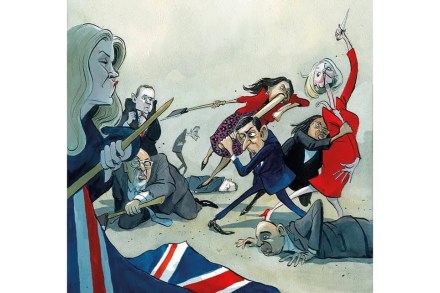What happens to the Tory party now?
Liz Truss is not quite the shortest-serving prime minister in history. George Cunning has that prize because he died while he was in office. But for somebody who is still alive, at least, this is the shortest running term. If MPs can whittle the number of candidates down to two by, let’s say, Tuesday the question that some of the party officials are currently trying to work out is whether the Conservative party has the ability to run an effective online ballot within a couple of days. That’s pretty much the only way of doing it. That obviously raises the question that there will be some members who don’t necessarily have





















